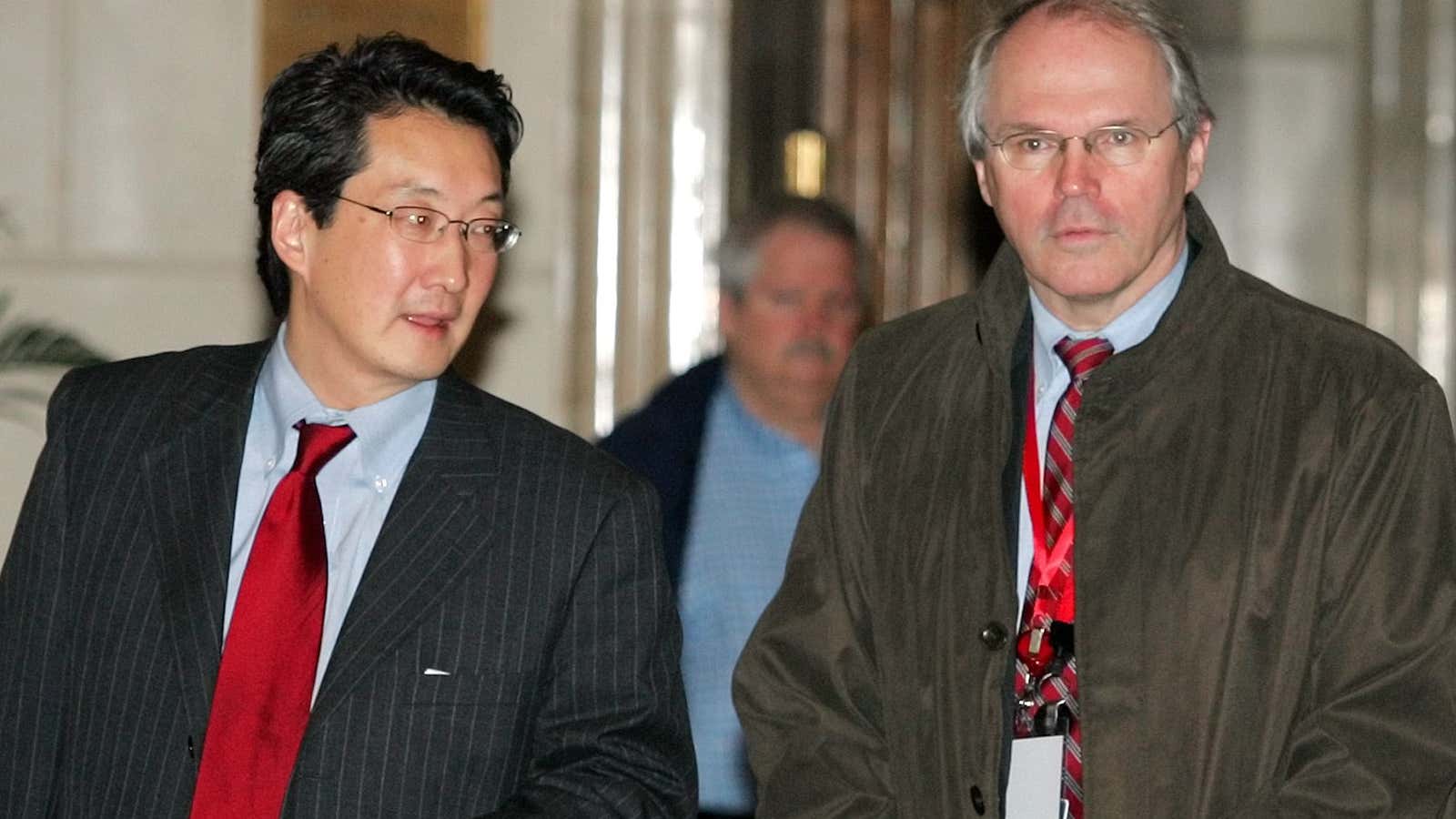Through North Korea’s increasingly provocative missile tests of recent months, and US president Donald Trump’s combative response, security experts have worried over the fact that the US didn’t yet have ambassadors in the two countries most threatened by the bellicose state: South Korea and Japan. Washington’s new ambassador to Japan, William Hagerty, finally arrived there earlier this month. Now, South Korea looks set to get its top US envoy too.
Reuters reported on Wednesday (Aug. 30), on the heels of North Korea firing a missile that passed over Japan, that the administration of US president Donald Trump is about to announce a former White House official, Georgetown University professor Victor Cha, as its nominee for ambassador to South Korea. The report drew cheers online from many Korean peninsula watchers. The White House and Cha didn’t immediately respond to our requests for comment.
It’s been a while since the news of a Trump appointment met such a positive reception.
Cha, who is Korean-American, was former president George W. Bush’s top North Korea representative and was deputy head of the US delegation to the six-party talks intended to secure a North Korean agreement to shut down its nuclear program. The talks were ultimately unsuccessful.
Presently, he is Korea Chair at Washington’s Center for Strategic and International Studies (CSIS) and also directs Asian studies in the government department at Georgetown University. Cha has written several books on North Asian security, including The Impossible State: North Korea, Past and Future, published in 2012, a work that national security adviser H.R. McMaster once named as required reading for military affairs professionals.
Cha’s name is a signal that pressure on China as the linchpin in getting North Korea to dial down its military development—a responsibility China has complained of as unfair—isn’t going to ease up. China needs to be willing to pay for a freeze on North Korea’s nuclear program, Cha argued in a CSIS podcast in July.
“China’s got to stop free-riding,” he said, “If they want a freeze on North Korea’s nuclear program then they’re the ones who have to be willing to pay for the freeze rather than trying to cherry-pick things they don’t like about US military deployments in the region and then putting those on offer as our payment, the US payment, for a North Korean freeze.”
As for sanctions, he said in the same podcast that people are too hasty to say they’re not working. “Sanctions are the most maligned tool of diplomacy,” he said. “Everybody says sanctions don’t work until they work …when North Korea comes back to the table that will tell us that sanctions have worked. But no one will admit that because then they’ll focus on the negotiation.”
For more on Cha’s thinking on North Korea, listen to the CSIS podcast (which is under 15 minutes) or watch this 2015 Paulson Institute video.
